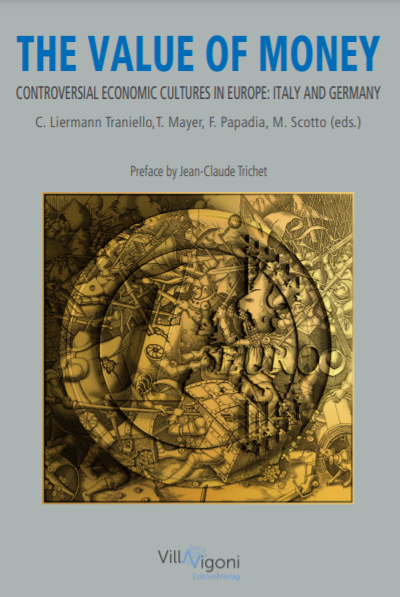Blog Post
Renzi’s risky budget strategy
Last week the Renzi government approved the 2016 budget law proposal. Although the detailed text is not available yet, the broad picture is clear.
The Italian government intends to postpone the fiscal adjustment decided last year in accordance with European authorities, and to increase instead the budget deficit in 2016 by about 0,8 GDP points, from an estimated 1,4% to 2,2% (or even to 2,4%, depending on whether the Commission will grant some extra budget flexibility to cope with the refugee crisis). The extra fiscal space will be used to avoid an automatic tax rate increase in VAT and other excises for about 1% of GDP, to eliminate the property tax on the main house of residence of taxpayers (about 4 billion euro), and to offer a tax incentive to private companies to promote investments.
Apart from the increased deficit, the funding comes from a limited spending cut of about 5,8 billion, half of what was planned in the official budget documents just few months ago; from the one-off tax revenues of the “voluntary disclosure” on capital illegally transferred abroad; and by the expected extra revenues generated by increased economic activity, with real GDP assumed to grow by 1,6% in 2016. The fiscal adjustment is postponed to 2017 and 2018, when, according to the Government, a very optimistic rate of GDP growth and the consequent booming tax revenues will allow Italy to respect European rules and reduce the public debt over GDP ratio according to the 1/20 rule.
According to the prime minister, this is a budget law aimed at improving and consolidating the trust of citizens in the country’s ability to recover after the long recession. It has therefore to be more expansive even with respect to what was foreseen just few months ago (although public deficit should still fall in 2016 with respect to 2015, thanks to the improved economic conditions).
How can one explain this abrupt turn in policy orientation? Partly, it has to do with the electoral cycle. With the definite approval of the Constitutional reform this month (assuming, as is likely, that it will be confirmed by national referendum next year) and of the electoral rule reform in May 2015, all pieces of the institutional puzzle that the Prime minister has carefully tried to solve since coming to power finally are coming into place.
Matteo Renzi might now attempt to call for national elections next year or at the beginning of 2017 (the legislature will end in 2018), thus finally producing a Parliament more in line with the premier’s wishes and more willing to support his government’s policies. It should be recalled in fact that the present Prime Minister replaced Enrico Letta as a result of his successful campaign for leadership inside the Democratic Party, but the Party’s elected MPs – the cornerstone of Renzi’s majority in Parliament– largely reflect the former leadership and are only partly loyal to the new leader. Good economic performance in 2016 is just what the Italian prime minister may need to be successful at the next elections.
Electoral considerations also explain some of Renzi’s otherwise puzzling choices, like the abolition of the property tax on the house of main residence of taxpayers. This is a decision taken by the premier alone, against the advice of all his economic consultants and the wishes of most of his party members, let alone the European Commission. The explanation is political.
The elimination of the housing property tax has been a political symbol of the centre-right for a long time, successfully used by Silvio Berlusconi on several occasions to dampen the victory of his opponents, including during the last national elections in February 2013. At a relatively cheap cost (only about 4 billion euro), Matteo Renzi has eliminated one of the most powerful electoral arguments available to his opponents. Electoral considerations probably also explain some of his most recent statements, which have been unusually harsh towards the European Commission (“if they reject our budget law, we will send it back as it is”). Statements like these, appealing to national pride, attract those who vote for his most dangerous opponents in the electoral context, like Beppe Grillo’s Five Star Movement or Matteo Salvini’s Lega North, who are typically anti-Europe and anti-Euro.
But this is only part of the story, albeit an important one. This budget law also represents a deliberate strategy to attempt to modify the European budget rules by pretending to formally respecting them. As the policy option of proposing an explicit reform of the European Fiscal Compact is not available due the opposition of Germany and other northern European countries, Renzi seems convinced that he can reform the rules by bending them, forcing everybody, including the EU Commission, to interpret them so loosely as to eliminate most of their bite, except for a general adherence to the 3% deficit budget rule. He seems also to count on political neutrality from the German chancellor, now weakened by the refugee problem and more in need of finding alliances with Southern European countries.
It is a very risky strategy. First, it might simply not work. Rules circumvented today might have to be respected even more strongly in the future. In that case, Italy might find itself devoid of useful fiscal space if, especially if, any of the current exceptionally positive circumstances (low interest rates, falling exchange rate, low prices for oil and other raw materials, sustained international growth etc.) were to be reversed.
Second, it is a strategy that risks creating political difficulties for the European Central Bank. The ECB needs to show that countries in the periphery are delivering to maintain the expansive monetary policy that is essential to keep the interest rates on Italian public debt at the present low level.
Finally, and for the same reasons, it might contrast with the Italian agenda on other important European matters. For instance, it might jeopardize attempts by the Italian government, to complete the banking union with a more explicit risk sharing provision on deposits, and introduce some form of European insurance mechanism on unemployment. More fundamentally, even if one is convinced that the Euro area would benefit from a more expansive fiscal policy, it is not Italy, with its public finance situation, that can play this role and certainly not alone.
Republishing and referencing
Bruegel considers itself a public good and takes no institutional standpoint. Anyone is free to republish and/or quote this post without prior consent. Please provide a full reference, clearly stating Bruegel and the relevant author as the source, and include a prominent hyperlink to the original post.










